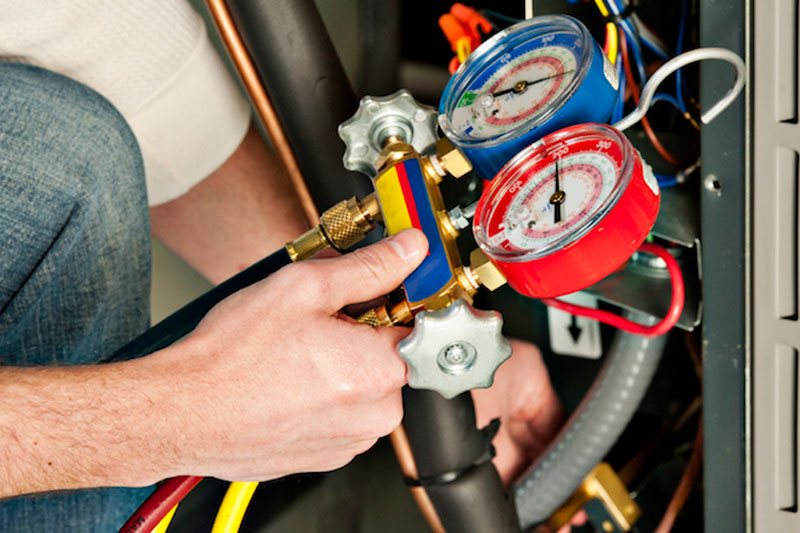
You might not think often about how your air conditioner works, but it relies on refrigerant to keep your house fresh. This refrigerant is subject to environmental laws, as it contains chemicals.
Depending on when your air conditioner was added to your home, it may require R-22, R-410A or R-32 refrigerant. We’ll review the differences and which air conditioner refrigerants are being phased out in Central Point, in addition to how these phaseouts have on influence on you.
What’s R-22 and Why Is It Phased Out?
If your air conditioner was added before 2010, it probably has Freon®. You can learn if your air conditioner uses it by contacting us at 541-286-6617. You can also inspect the name plate on your air conditioner condenser, which is situated outside your home. This sticker will include details on what kind of refrigerant your AC uses.
Freon, which is also known as R-22, includes chlorine. Scientists consider R-22 to be damaging to the earth’s ozone layer and one that leads to global warming. The Environmental Protection Agency, which controls refrigerants in the United States, banned its production and import in January 2020.
I Use an Air Conditioner with R-22. Do I Need to Get a New One?
It differs. If your air conditioning is cooling correctly, you can continue to keep it. With regular air conditioner maintenance, you can expect your air conditioning to last around 15–20 years. However, the Department of Energy reports that removing a 10-year-old air conditioner could save you 20–40% on yearly cooling costs!
If you don’t replace your air conditioner, it can lead to difficulties if you need air conditioning repair later on, specifically for refrigerant. Repairs can be pricier, because only reduced quantities of recycled and reclaimed R-22 is on hand.
With the discontinuation of R-22, a lot of new air conditioners now use Puron®. Also referred to as R-410A, this refrigerant was developed to keep the ozone layer strong. Since it calls for a varying pressure level, it isn’t compatible with air conditioners that need R-22 for cooling.
However, Puron still has the potential to lead to global warming. As a consequence, it might also eventually be ended. Although it hasn’t been disclosed yet for residential air conditioners, it’s expected sometime this decade.
What Refrigerant Will Take the Place of R-410A?
In preparation of the phaseout, some manufacturers have started using R-32 in new air conditioners. This refrigerant ranks low for global warming likelihood—around one-third less than R-410A. And it also decreases energy use by about 10%, according to the Intergovernmental Panel on Climate Change’s Fourth Assessment Report. That’s savings that may be forwarded on to you through your cooling bills.
Titan Heating & Air Conditioning Can Assist with All Your Air Conditioning Needs
In short, the modifications to air conditioner refrigerant probably won’t affect you a whole lot until you need repairs. But as we discussed earlier, repairs connected to refrigerant might be more expensive since there are the low quantities that are accessible.
Not to mention, your air conditioner typically malfunctions at the worst time, typically on the warmest day when we’re experiencing many other requests for AC repair.
If your air conditioner relies on a discontinued refrigerant or is aging, we advise installing a new, energy-efficient air conditioner. This provides a hassle-free summer and might even decrease your cooling bills, especially if you get an ENERGY STAR®-rated system. Plus, Titan Heating & Air Conditioning offers many financing solutions to make your new air conditioner work with your budget. Contact us at 541-286-6617 to begin now with a free estimate.

